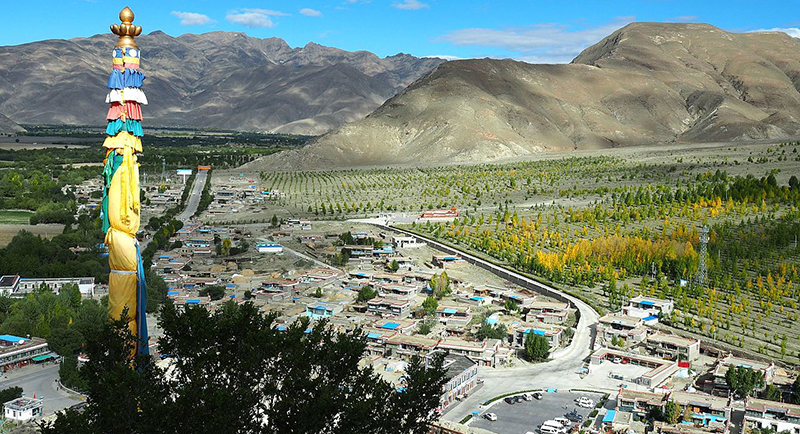Dharamshala — Chinese authorities stepped up their warnings and strict controls on Tibetans ahead of the 74th anniversary of the founding of the PRC. The Chinese authorities in Lhoka, in southern Tibet, announced the expulsion of three Tibetan officials from their office for violating so called "The Eight-point Regulation of the Centre", intended to warn Tibetans not to engage in any activity that goes against the Chinese government.
The Chinese authorities in Lhoka, southern Tibet, expelled three Tibetan officials from their posts on the grounds that they had violated so called the "The Eight-point Regulation of the Centre", according to Chinese sources, which announced on September 27 , 2023. Every year, before and during the PRC's founding day, the Chinese increase the restrictions imposed on Tibetans in terms of freedom of movement, expression and assembly; this year is no exception, with the authorities even evicting Tibetans from their offices in order to warn other Tibetans.
This so called "The Eight-point Regulation of the Centre" was intended to instil more disciplines among members of the Chinese Communist Party. In recent years, the Chinese authorities have intensified expulsions and arrests of Tibetan officials at county and city level, even though there are few Tibetans in these positions, but the real power is in the hands of the Chinese authorities, who now expel them by giving them other criminal names.
According to some sources, the Chinese authorities investigated the Tibetan officials at Lhoka and announced that three Tibetan officials had been dismissed for violating so called "The Eight-point Regulation of the Centre", namely Dhondup Tsering, Nyima Tenzin, Nyima Tsering, they were accused of accepting money, gifts, attending parties and committing other illegal acts; two of them were expelled in June, 2023 and another in July, 2023.
China-Tibet: The one-thing you need to know
Over the past 70 decades, there has been ongoing political repression, social discrimination, economic marginalization, environmental destruction, and cultural assimilation, particularly due to Chinese migration to Tibet which is fueling intense resentment among the people of occupied Tibet.
The communist-totalitarian state of China began its invasion of Tibet in 1949, reaching complete occupation of the country in 1959. Since that time, more than 1.2 million people, 20% of the nation's population of six million, have died as a direct result of China's invasion and occupation. In addition, over 99% of Tibet's six thousand religious monasteries, temples, and shrines, have been looted or decimated resulting in the destruction of hundreds of thousands of sacred Buddhist scriptures.
Until 1949, Tibet was an independent Buddhist nation in the Himalayas which had little contact with the rest of the world. It existed as a rich cultural storehouse of the Mahayana and Vajrayana teachings of Buddhism. Religion was a unifying theme among the Tibetans -- as was their own language, literature, art, and world view developed by living at high altitudes, under harsh conditions, in a balance with their environment.


![Tibet has a rich history as a sovereign nation until the 1950s when it was invaded by China. [Photo: File]](/images/stories/Pics-2024/March/Tibet-Nation-1940s.jpg#joomlaImage://local-images/stories/Pics-2024/March/Tibet-Nation-1940s.jpg?width=1489&height=878)


















